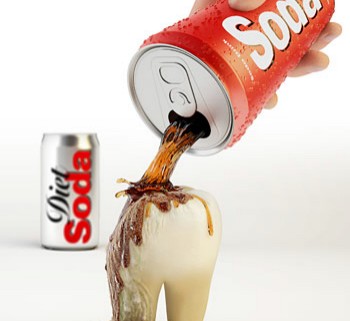Tips for Preventing Everyday Tooth Erosion
Shiny white and beautiful teeth not only improve our smile but also allow us to eat and digest our food efficiently. Have you ever wondered what would happen if you did not take care of your mouth and stopped brushing and flossing your teeth? If you ignore your oral health for a long time, the harmful bacteria inside your mouth attack your teeth and cause erosion and decay, as well as dental infections. The loss of tooth structure due to exposure to acidic substances is called erosion, and it is the single most causitive factor behind cavities and dental infections.
Below are common culprits in tooth erosion, and tips on how to combat them:
Acidic Drinks
As soon as you consume any acidic drink such as carbonated beverages or alcohol, the pH inside the oral cavity immediately drops (becomes acidic). This results in an increase in the removal of minerals from the enamel. The loss of minerals from enamel is called decalcification and results in the weakening of the tooth structure. Once the enamel is weakened, it is much more likely to decay.
Since it’s nearly impossible to avoid acidic drinks, we need to take steps to minimize their effects on our teeth. After you consume an acidic beverage, you should wait about an hour before brushing your teeth. If you aren’t in a place where you can brush your teeth, the next best thing to do is rinsing your mouth with water directly after consuming acidic foods and drinks. If you brush your teeth right away, you actually would be brushing away the already weakened tooth enamel layer by brushing the acid into your teeth. Brushing your teeth about an hour after having a drink helps ensure that the acidity of the oral cavity has normalized, and the enamel has restored it’s hardness. Additionally, you want to brush after such beverages as soda to help prevent the sugars from adhering to teeth and further lowering the intra-oral pH.
Wine
Drinking alcoholic drinks can damage your teeth in several ways. First, the sugars and acids present in the wine can cause tooth demineralization, just as it can in soda. Secondly, alcohol causes dehydration of the oral cavity, resulting in the development of cavities. Dehydration (or a dry mouth) can also cause bad breath. Finally, alcoholic drinks can stain your teeth and any fillings. The best way to prevent any damage to your teeth after drinking wine is to rinse with water immediately and after an hour, brush.
Lemon
Lemon juice is very acidic, and can strip the minerals from the enamel of the teeth. There are many health benefits to lemons, including its Vitamin C content and antibacterial properties, and we want to make sure we can enjoy the benefits of lemons while minimizing any potential damage to our oral health. The best way to prevent tooth erosion is to clean your teeth whenever you have lemon water or a lemonade — rinse your mouth with water immediately after drinking beverages the are citrusy. Drinking lots of fresh water will also help ensure that the acid which adheres to the teeth is flushed away. Follow the same routine as you would for any acidic drink — Rinse your mouth, wait an hour, then brush.
Tea/Coffee
These days, drinking coffee seems to be a required morning ritual. It’s difficult to avoid coffee is our culture anymore. While tea is a good alternative to coffee, it tends to have similar effects on the oral cavity as does coffee. While having a cup of tea or coffee first thing in the morning helps to wake you up with a wonderful energy boost, they can stain your teeth. However, if you simply remember to clean your teeth after drinking tea or coffee, you can greatly reduce the prevalence of coffee/tea related stains the teeth. Coffees and teas are also acidic, so remember — Rinse your mouth, wait an hour, then brush.
Diet
Many of our patients have very good oral hygiene but because of acid in their diet or medical problems such as acid reflux disease, they have severe erosion to the dental enamel. If you feel that you are consuming a lot of acidic food and drinks, we recommend you reevaluate your diet.
Optimize Your Daily Routine
What to do at Bedtime:
Brush — If you’re too lazy to brush your teeth at night, a layer of plaque will develop on your teeth overnight which can lead not only to demineralization of the teeth, but had breath! If you’ve consumed coffee, tea or wine, or ate dinner right before you go to bed, then at the very least take the time to floss, making sure to remove plaque from the gum line and in between the teeth. Additionally, you want to rinse your mouth very well with water or mouthwash while swishing vigorously.
Floss — You should floss your teeth at least once a day. I recommend flossing in the evening. However, you can also choose another additional time in the day to floss, should you feel the need. As long as it’s done once a day.
Brushing your teeth before going to bed and immediately after waking up must be a part of your regular oral hygiene routine.
What to Do in the Morning:
Brush- Be sure to brush your teeth first thing….before doing anything else! If you love your teeth and want them to remain sparkling white for life, then you should take your oral hygiene routine very seriously. The first thing that you should do after getting up brush your teeth. DO NOT eat anything in the morning without first brushing your teeth because you would essentially be ingesting all the harmful bacteria that matured in your mouth overnight along with your food if you eat without brushing.
Enjoy a Wholesome Breakfast — Sticking to a healthy and balanced meal for your breakfast will not only allow you to have energy throughout the day, but the essential vitamins and minerals will make your teeth stronger and more resistant against dental infections.
Remember, your teeth will erode if you are not careful about your oral hygiene and diet. Therefore, if you look after your teeth, and ensure you’re eating a healthy and balanced diet, you can keep dental problems at bay.








